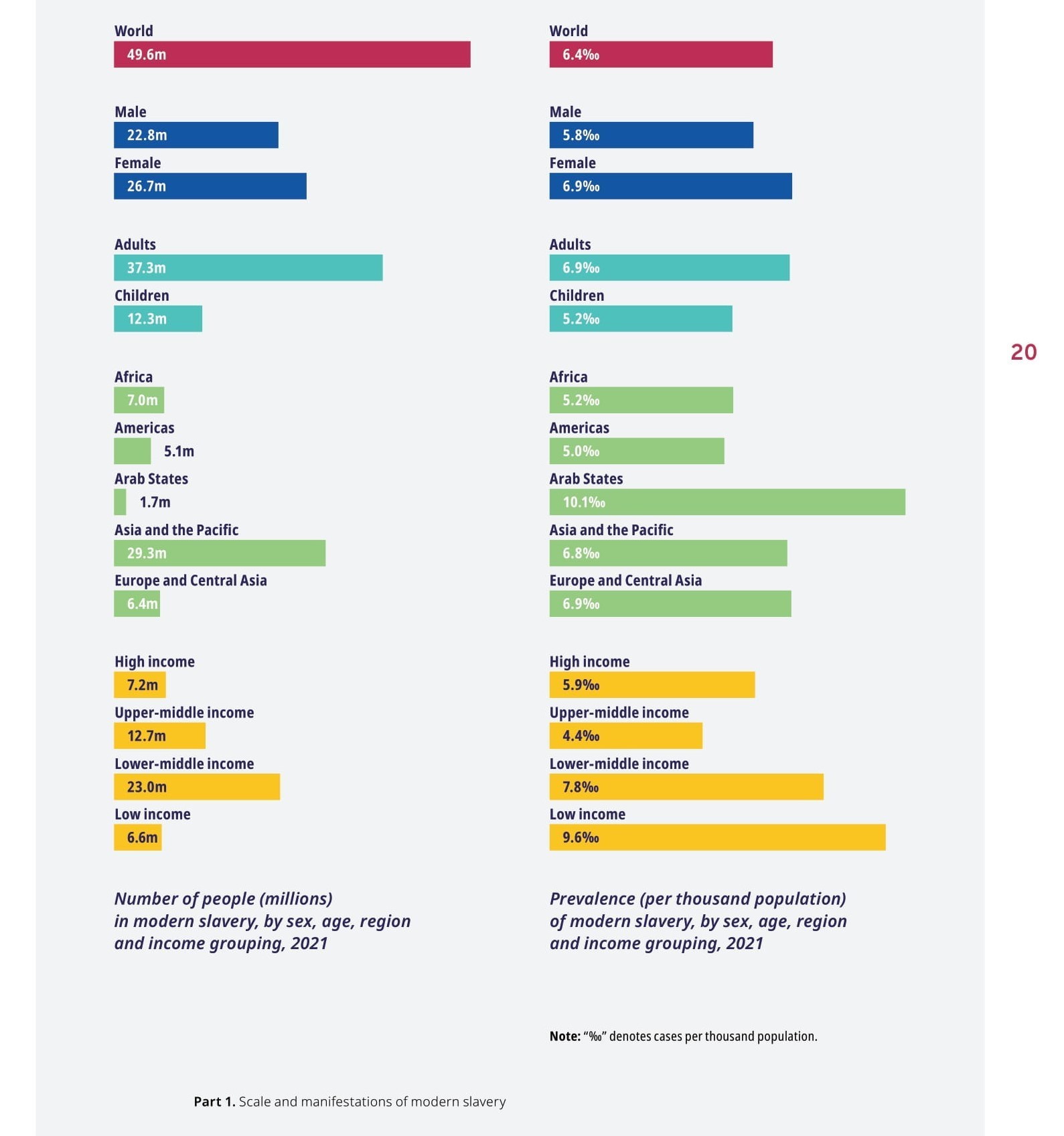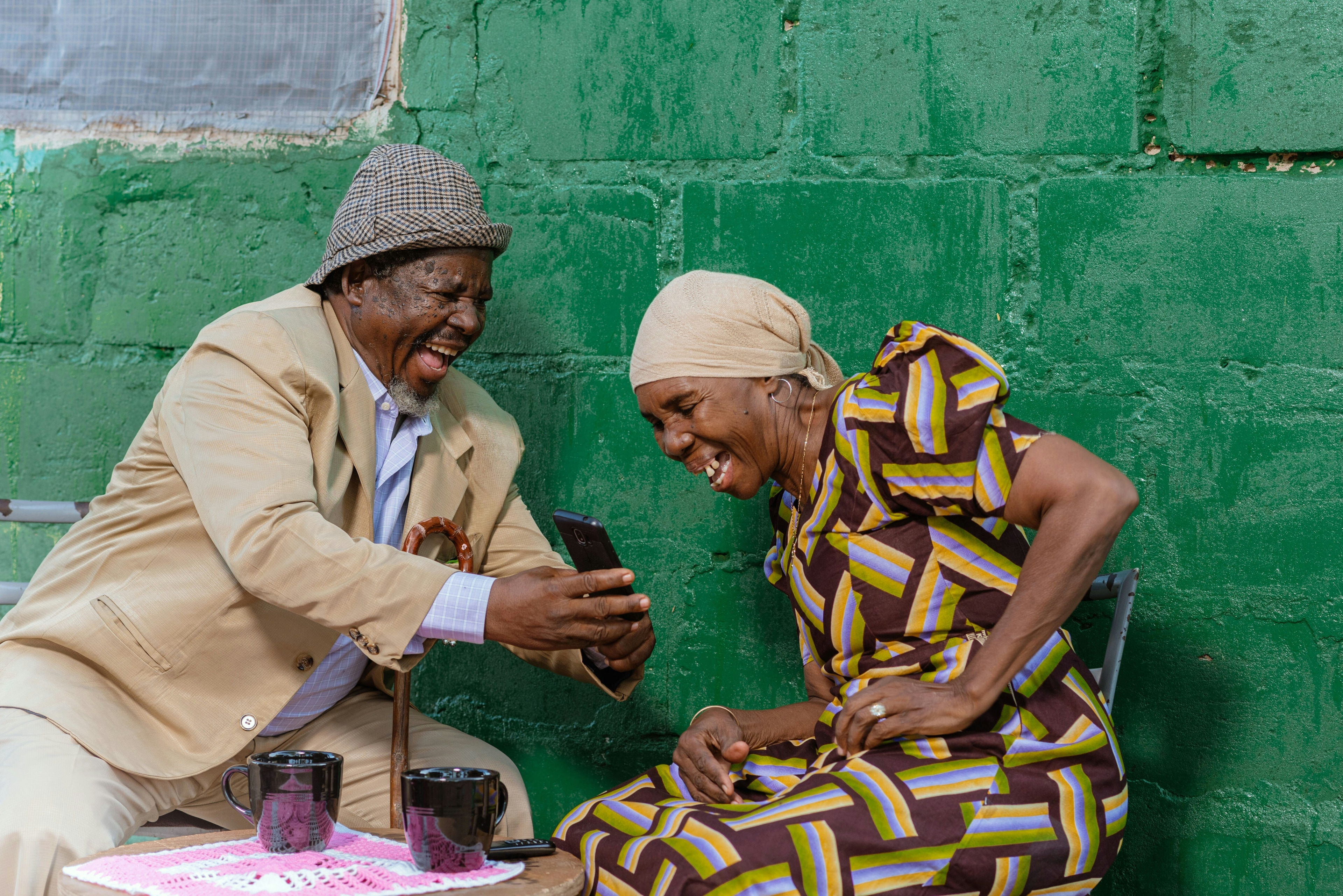Modern slavery is increasing – 1 in every 150 people are victims

An increase in extreme poverty since the pandemic began has contributed to the rise in modern slavery Image: Unsplash/Atul Pandey
Listen to the article
- Almost 50 million people, or one in every 150 worldwide, are in situations of modern slavery, according to the International Labour Organization.
- Migrant workers are more than three times more likely to be in forced labour than non-migrant adult workers.
- There were also 22 million people living in situations of forced marriage on any given day in 2021.
Centuries on from the abolition of slavery in major economies worldwide, enforced labour is still a huge problem.
A new International Labour Organization (ILO) report shows that 50 million people – that’s 1 in every 150 worldwide – are in situations of slavery globally. More than 3.3 million of these are children.
The ILO and human rights organization Walk Free gathered data for the report from nationally representative household surveys. They also collated information from anonymized counter trafficking data collected by the International Organization for Migration (IOM) and its partners.
Modern slavery is increasing
The UN has set out a goal to end forced child labour by 2025 and abolish all slavery by 2030, but a lot of work still needs to be done to achieve these aims.
The number of people in slavery increased by 2.7 million between 2016 and 2021, according to the ILO, which says this growth has accelerated since the onset of COVID-19. The private economy is the main source of the rise, while state-enforced labour counts for one in seven cases of modern slavery, the report adds.
An increase in extreme poverty since the pandemic began has contributed to the rise in modern slavery, the report says. The World Bank says that extreme poverty is a major factor driving forced labour.
COVID-19 led to escalated individual debt, resulting in more people being vulnerable to exploitation, the ILO adds.
The sectors driving slavery
Five sectors account for almost 90% of adult forced labour, according to the ILO. These are services (excluding domestic work), manufacturing, construction, agriculture (excluding fishing), and domestic work.
Women in forced labour are far more likely than men to be in domestic work, while men are much more likely to be put to work in the construction sector, the report says.

Around 22 million people were in forced marriages in 2021 – an increase of 6.6 million increase from 2016, the ILO says. Over two-thirds of those forced to marry are female. This equates to an estimated 14.9 million women and girls.
Migrants and human trafficking
Migrant adult workers are also more than three times more likely to be in forced labour than non-migrant adult workers, the report says. This is due to an increased risk of unfair or unethical recruitment policies, or irregular or poorly governed migration.
As events such as climate change lead to increased migration worldwide, measures must be taken to protect the displaced from further exploitation.
“Reducing the vulnerability of migrants to forced labour and trafficking in persons depends first and foremost on national policy and legal frameworks that respect, protect, and fulfil the human rights and fundamental freedoms of all migrants – and potential migrants – at all stages of the migration process, regardless of their migration status,” says IOM Director-General António Vitorino.
“The whole of society must work together to reverse these shocking trends, including through implementation of the Global Compact on Migration,” he adds.
How to end modern slavery
To end modern slavery, institutions will need to work collaboratively. “An all-hands-on-deck approach is needed,” says ILO Director-General Guy Ryder. “Trade unions, employers' organizations, civil society and ordinary people all have critical roles to play.”
The ILO report highlights significant actions institutions can take, including:
Improving and enforcing laws and labour inspections.
Ending state-imposed forced labour.
Creating stronger measures to combat forced labour and trafficking in business and supply chains.
Extending social protection.
Strengthening legal protections, including raising the legal age of marriage to 18 without exception.
The ILO also highlights the need to address the increased risk of trafficking and forced labour for migrant workers. It calls for the promotion of fair and ethical recruitment, and greater support for women, girls and vulnerable individuals.
Don't miss any update on this topic
Create a free account and access your personalized content collection with our latest publications and analyses.
License and Republishing
World Economic Forum articles may be republished in accordance with the Creative Commons Attribution-NonCommercial-NoDerivatives 4.0 International Public License, and in accordance with our Terms of Use.
The views expressed in this article are those of the author alone and not the World Economic Forum.
Stay up to date:
Human Rights
Related topics:
Forum Stories newsletter
Bringing you weekly curated insights and analysis on the global issues that matter.







